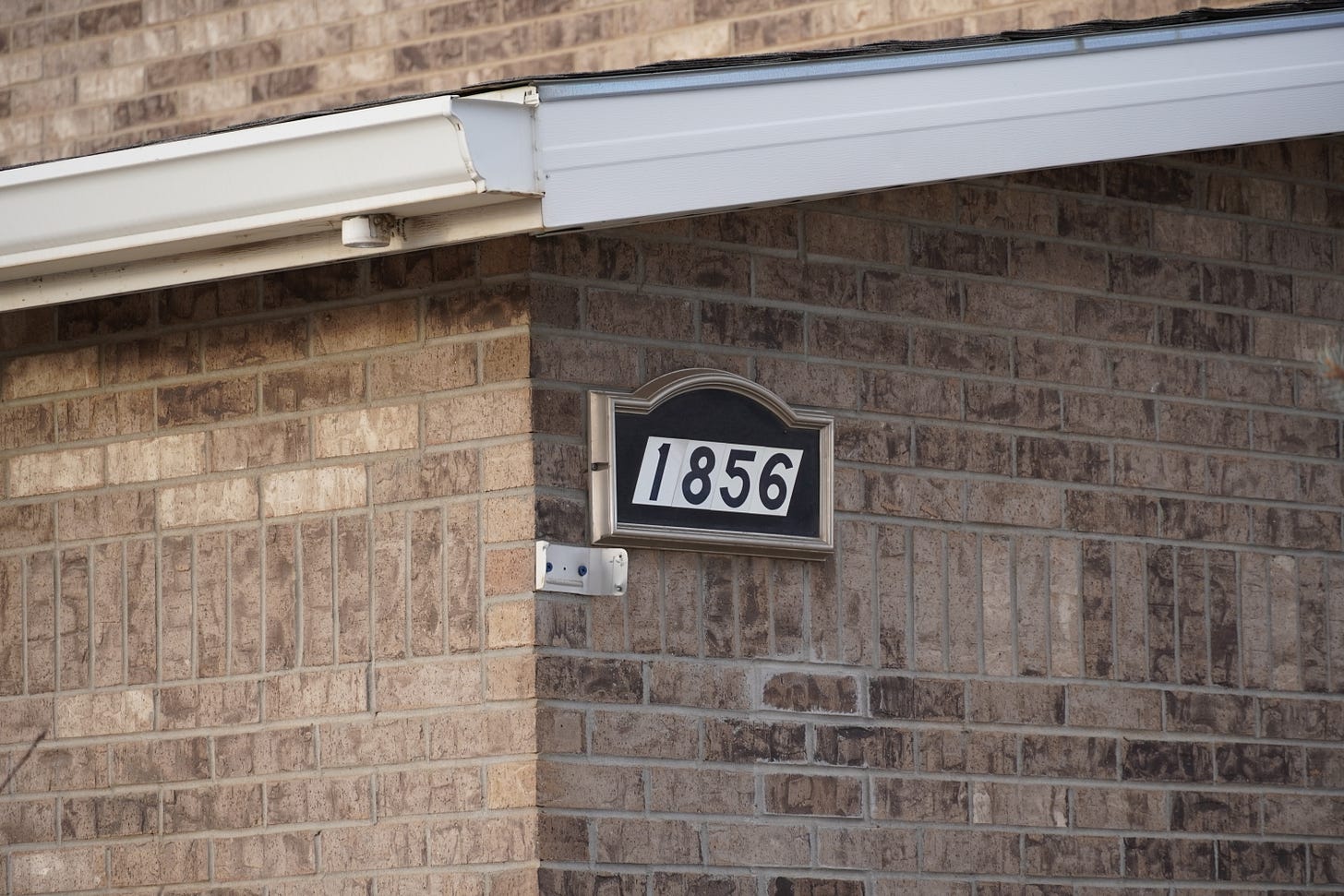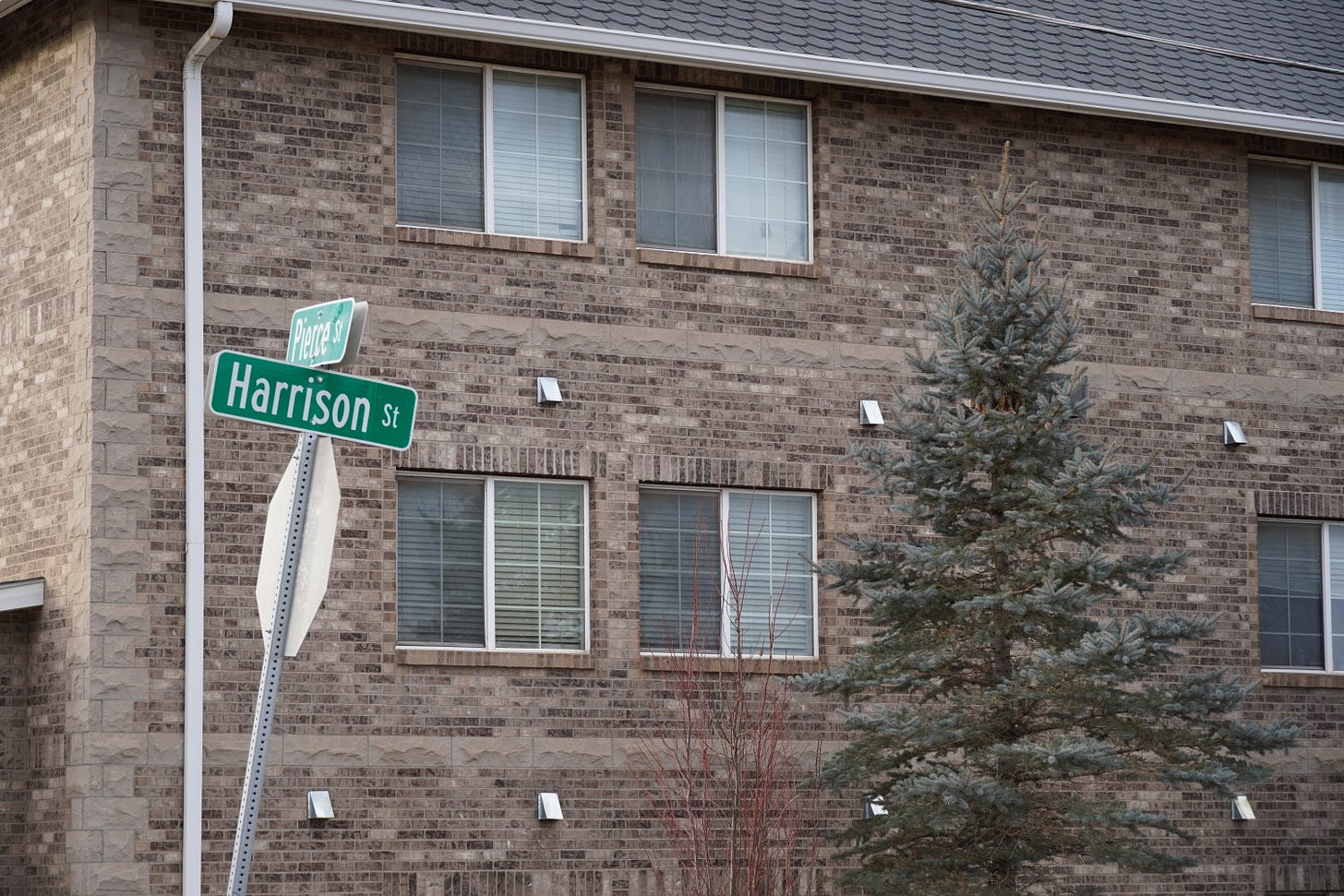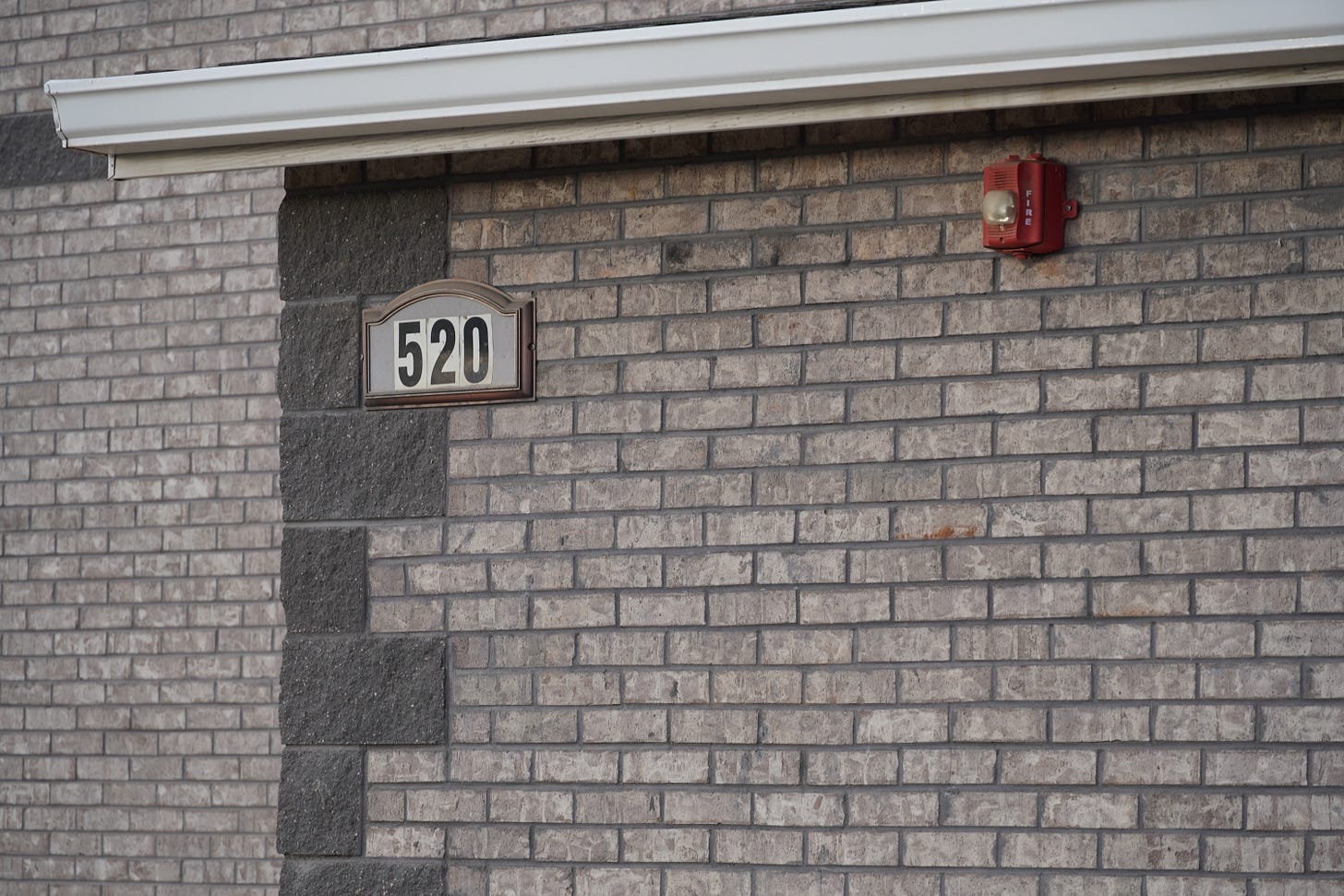First ever rental code court case decided in landlord’s favor
A tenant complained about her unregistered apartment’s habitability. The court ruled that her landlord, Arsenio Lemus, can’t be held responsible for any violations made by the LLC he owns.

Arsenio Lemus was the first Laramie landlord to be charged for alleged violations of the City Rental Housing Code. He was found not guilty when the court ruled the city had failed to prove he was the owner of the property in question.
That property — a West Laramie apartment complex on the corner of Harrison and Pierce Streets — is owned by Opportunity Knocks Enterprises, LLC, according to Albany County Assessor records. The LLC is in turn owned by Arsenio Lemus, according to Wyoming Secretary of State records.
But the Laramie Municipal Court ruled this was not sufficient to establish Lemus’ ownership of the apartment. The final order dismissing the charges against Lemus agrees with the defendant’s assertion that he “is not the proper party in interest.”
Jessica Evans, the now-former tenant who attempted to hold the man accountable via Laramie’s relatively new Rental Housing Code, has no doubt that Lemus was her landlord.
Evans had been writing rent checks to Lemus since 2018, the year she moved in, and the P.O. box on her lease matches the P.O. box listed as the company’s principal office. But because the apartment is legally owned by the LLC and not by Lemus personally, the court found he cannot be held responsible for the unit going unregistered — nor for the alleged health and safety violations present in that unit, which were confirmed by a city inspection.
Evans said the ruling was absurd.
“I’m so disappointed,” she said. “I’m flabbergasted and devastated — actually all of those feelings — that there was so much standing against him, and that it came down to a technicality of him not actually being the property owner.”
Two weeks before the eventual hearing in municipal court, Evans was kicked out of her apartment.
“You are hereby informed of the intentions of the Landlord to terminate your tenancy for reasons such that; the Lease has expired and will not be renewed,” states the notice, which gave Evans and her partner until early November to vacate. “Landlord wishes to perform certain repairs and upgrades to said unit which does require the unit remain vacant and accessible and free of all personal items; in order to initiate and complete necessary repairs.”
Lemus declined to comment for this story.
A test of the City Rental Housing Code
Laramie is a city of renters where more than half the population rents the roof over their head. The city has a documented history of unscrupulous and often unaccountable landlords taking advantage of poor, first-time and student renters.
Rental regulations were first attempted in 2019, but the city’s landlords organized to kill them. By late 2021, however, the situation was different. Tenant horror stories had been thrust into the local spotlight and were, for the first time, getting attention outside of tenant communities. A new, more progressive city council had come into office.
The councilors adopted the Rental Housing Code in early 2022, giving it an official launch date one year later, in January 2023. The code establishes basic health and safety standards, requires landlords to register their rentals and outlines a complaint process for tenants.
It’s been plagued by problems from the start.
The code has been challenged — unsuccessfully — by both litigation and legislation, and noncompliance on the part of landlords remains an issue.
Lemus’ win in municipal court outlines a further issue with the code — namely, its practical application when a landlord owns their apartment through an LLC. While the code does use the word “landlord” a few times, it mostly makes demands of a property’s “owner” — a term the court understands to mean the legal entity which owns the rental unit.
Assistant City Manager Todd Feezer, who handled Evans’ complaint, declined to comment for this story.
“We are still working on legal issues related to this and am unable to comment,” Feezer writes in an email response to the Laramie Reporter.
For Evans, Lemus’ win shows that the rental housing code isn’t working in its current form.
“I think it’s a good start, but it needs more teeth,” she said. “I think there’s still too many loopholes.”
Evans said her experience shows the code is failing to keep landlords — or the legal entities that take their place — accountable for “ensuring that their tenants have habitable living spaces.”
“One of the things that it says on the website, when you go through this [complaint] process, is that they are trying to create a space in which landlords and tenants can be open and communicate with each other,” Evans said. “And from my experience, it didn’t work because I wasn’t communicating with the actual landlord.”
Laramie Mayor Sharon Cumbie, who voted in favor of the rental housing code, did not respond to interview requests.
From broken appliances to municipal court
Evans lived at 1856 Harrison Street for more than six years, from April 2018 to November 2024.
She lived there with her partner, Jerry Val Evans, and their pets — initially, a big dog and two cats. Evans said they’re both “low-income.” He works while she is a university student, and they get by on a combination of his wages and her student loans.
Evans said it’s difficult finding apartments in Laramie that will allow pets, even with a deposit. Like others, they found themselves locked into living where they otherwise wouldn’t have because it was one of the few places that would allow them to keep their pets.
“Finding a place that was a reasonable cost to live in was hard enough,” Evans said. “Finding some place that would either accept having dogs and cats or having a big dog was very challenging.”
In the spring of 2024, Evans complained to her landlord, Arsenio Lemus, and his property manager, Morgan Porter, about several alleged habitability issues, including the lack of a smoke detector in a bedroom, weatherproofing issues, a leaky water heater and other faulty appliances the tenant had to fix herself.
“I did give at least a couple written updates on, ‘Hey, this problem is still a problem,’ because I try to give people grace and understanding,” Evans said. “Running a small business is tough, and sometimes it takes a minute to get ducks in a row. And I never wanted to have to put anybody in a tough spot, but I just couldn't handle continuing to be ignored.”

Enforcing the rental housing code requires significant effort on the part of the tenant.
To begin the process, a tenant must notify their landlord in writing of habitability issues with the apartment and give the landlord time to correct them — a full ten days for most fixes, and only two days for serious safety-related issues. If the landlord fails to address the issues, the tenant can then file a complaint with the city and the city will conduct an inspection before ordering fixes.
When the problems with her apartment were not remedied, Evans submitted an official complaint with the city May 8.
The city inspected the unit May 15 and found a leaking water heater, a non-functioning toilet and a non-functioning heater, windows that did not lock or “function properly,” a sink and other appliances that had been repaired by the tenant, and a missing smoke detector, according to a “Notice of Violation” letter obtained through a records request.
That letter ordered remedies to these issues, while also requiring that Lemus register the property — a legal requirement he had so far failed to obey.
“Given the range of issues, it might be worthwhile for the landlord to conduct a thorough inspection of the property to catch any other potential issues that tenants may not have reported yet,” the letter states.
The city alleged neither the required fixes nor the registration occurred so it brought charges against Lemus in July.
For the alleged violations, the city sought to fine Lemus between $12,200-$91,500 for failure to repair the reported habitability issues and between $2,200-$16,500 for failure to register his rental unit. In the eventual closing argument, the city reduced this ask to $19,500 — the fine outlined by the rental code for failing to register 18 apartments for four months in addition to fines sought for allegedly failing to remedy the health and safety issues.
“The City believes the fines are necessary, appropriate, and the minimum required under Code,” the city notes in its closing argument. “The City hopes the fines and fees will demonstrate to the Defendant that the City will enforce its desire to provide minimum habitability criteria to safeguard health, property and public wellbeing of the owners, occupants and users of rental housing within city limits.”
All parties appeared in Laramie Municipal Court on Oct. 21.
“He is not the owner of the rental housing complex”
Lemus’s properties were among the first to generate complaints. He was the first — and so far the only — landlord to wind up in court. Typically, the city seeks to avoid this route, preferring to work with landlords to bring their rentals into compliance.
But in Lemus’ case, that compliance — despite repeated communication — was allegedly not forthcoming.
Lemus and his property manager, Morgan Porter, did eventually register his rentals about 10 days before the municipal court hearing, asserting on the application form that “Yes,” the property is “in compliance” with the rental housing code.
Lemus and his legal counsel argued he should have been notified via certified mail. They further alleged, in court, there had been no re-inspection to confirm whether the issues were fixed.
So Assistant City Attorney Holli Austin-Belaski asked Porter whether the issues with Evans’ apartment had been fixed. Porter, who was on the stand and under oath, said she could not answer. The following snippet is representative of a stretch of questioning that worked through every alleged habitability violation:
Austin-Belaski: Can you testify from personal knowledge that the kitchen sink has been repaired as of today?
Porter: No, ma’am, I cannot.
Austin-Belaski: And can you testify from personal knowledge that the latch on the living room window has been repaired as of today?
Porter: No.
Austin-Belaski: But you’re the property manager, but yet you can’t testify that any of these things have actually been repaired?
Porter: That is correct.
But the case ultimately hinged on something else entirely.
While Lemus owns the company that owns the apartment, his lawyers argued — and the court eventually agreed — that the man could not be held responsible for violations allegedly committed by the LLC.
Lemus’ closing argument was filed on his behalf by his lawyers, Jason Tangeman and Bruce Asay. It argues:
At trial Mr. Lemus’ testimony was undisputed that he is not the owner of the rental housing complex located at 1856 Harrison Street as alleged in both Counts I and II of the Verified Complaint. Mr. Lemus testified that the owner of the property located at 1856 Harrison is Opportunity Knocks Enterprises LLC, a WY LLC and that he is not the proper party in interest … On this basis alone the Mr. Lemus is not the proper party in interest and the matter should be dismissed against him individually with prejudice.
Lemus’ lawyers raised other objections — such as alleging the city lacks the legal authority to enforce rental regulations — but these are not addressed in the court’s final ruling.
The final order, issued in December, states the court has seen no evidence that Lemus owns the apartment building.
“There is nothing in the Laramie Rental Housing Code to suggest that the term owner means anything other than the legal owner of the property,” the court order states. “The City has failed to meet its burden of proving that Arsenio Lemus-Frausto is the Owner of the property in question.”
The order acknowledges that Lemus’ name and another company he owns, “Arsenio Lemus Holdings Rental, LLC,” appear on the lease.
“While the name Arsenio Lemus is the common link, neither of these provisions indicate that Mr. Lemus is the legal owner of the real property,” the order states.
The LLC bearing Lemus’ name owns eight properties in Laramie, according to Albany County Assessor records. None of those addresses appear on the most recent list of registered rentals, which was published by the city exactly one week ago.
It’s possible the addresses from the assessor’s records do not match the street addresses provided to the city. This is the case with Evans’ old apartment. The address on her lease — 1856 Harrison — appears on the city’s list while the property’s alternative Pierce Street address does not.
There is no provision in the City Rental Housing Code prohibiting this discrepancy.
On the spot
While Lemus would not comment for this story, he did have a brief exchange with this reporter, who visited the Harrison/Pierce property Tuesday morning to take photos.
Lemus accused the reporter of publishing “pretty dirty things about me on the internet,” including a story specifically about this court case.
Lemus was informed that the outlet had never published a story solely about Lemus, nor anything about the court case in question and had published only one story that mentioned him.
That story, published in Jan. 2024, highlighted how a majority of landlords were not complying with the rental housing code. The final two sections of the story included some complaints received by the city and detailed the city’s interest in resolving such complaints without going to court.
Lemus — whose properties were then, and might still be today, unregistered — was named in the closing section. His name appears alongside Maximus Bossarei, a notorious local landlord who also had received habitability complaints and who also had failed to register most of his rentals.
The story noted Lemus could be the first landlord taken to court by the city.

Lemus said he would confer with his staff and might be open to an interview about the court case — so long as he could confirm this outlet had never published “a report that was not very favorable to me, that kind of put me in a really bad light.”
Lemus ultimately did not agree to be interviewed. But the morning interaction between landlord and reporter began with immediate suspicion. Lemus recognized the reporter, who was wearing a beanie advertising this outlet.
As he stepped out of a truck, Lemus questioned this reporter’s interest in the property owned by his LLC. Without preamble, he asked:
“Why are you taking pictures of my apartments?”





How absurd. The rental code clearly needs an update. As a landlord myself, I support holding unscrupulous landlords accountable. There is far too much abuse of renters in this town, and it gives we responsible landlords a bad name.
An outrage that we wormed his way out of accountability - I hope the Laramie City Council can amend the code to strengthen it.